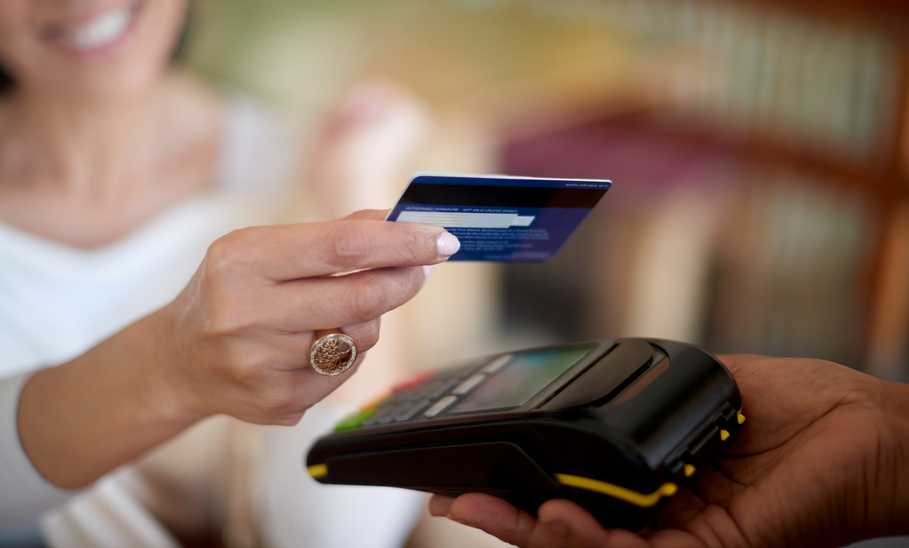Is a Merchant Cash Advance (MCA) Right for Your Business?

Our evaluations and opinions are not influenced by our advertising relationships, but we may earn a commission from our partners’ links. This content is created by TIME Stamped, under TIME’s direction and produced in accordance with TIME’s editorial guidelines and overseen by TIME’s editorial staff. Learn more about it.
If your small business is struggling with a cash-flow issue, as many do, you may be wondering if a merchant cash advance (MCA) is right for you. An MCA can help founders of new startups who have little to no business history or businesses with low credit scores. If you are unable to secure a standard small business loan, this option may work for you. However, you need to be aware of some significant downsides to this type of alternative financing arrangement.
An MCA is a type of business financing that differs from a traditional small-business loan. It is repaid to the lender through a portion of your business’ future sales. Lenders that offer an MCA charge a factor rate, which is a fee that is added to your funding amount, to arrive at a fixed repayment amount.
Repayment periods are typically very short, between three and 18 months. The short repayment period and high factor rates lead to a significant annual percentage rate (APR). The APR on an MCA is much higher than on a small-business loan or even a small-business credit card. Because the total repayment amount is fixed, there is also no benefit to early repayment, unlike a traditional business loan, for which interest is charged on outstanding principal.
An MCA provides your business with a lump-sum payment. In exchange, the lender receives the rights to a portion of your future sales. There are two main methods to repay your MCA.
| PROS | CONS | |
|---|---|---|
Requirements to qualify | It is significantly easier to qualify for an MCA than traditional business loans. | |
Funding speed | Funding is quicker than with traditional business loans. | |
No collateral required | Unlike traditional business loans, there is no collateral required. | |
Repayment schedule | It’s based on your business’ sales, so payments are lower in slower periods. | Constant daily repayments can lower cash flow in the future, trapping your business in a debt cycle. |
No reporting to credit bureaus | It cannot negatively impact your business credit if you default on payments. | On-time payments are not reported to credit bureaus, so it will not help your business credit score. |
High APR on repayment | Because of the short repayment periods and high factor rates, your APR can be significantly higher than traditional business loans, upward of three digits. | |
No early repayment benefit | Unlike a traditional amortizing business loan, there is no benefit to early repayment, because the total repayment amount is fixed. | |
No regulatory oversight | There is no federal regulation on MCAs. |
MCAs are easier to qualify for than a traditional small-business loan, and your credit score is not as important as it would be for such a loan. The application process is simple, and approval is typically quick. You can apply for an MCA online. You will usually need your name and contact details, business information, bank or credit-card processing statements, and any business tax returns.
Once you are approved for an MCA, funding may be deposited in your bank account in as little as 24 hours.
Unlike a traditional business loan, you will not have to put up any collateral, other than the agreed-upon percentage of your future sales.
The repayment schedules are short, typically three to 18 months. Having the holdback amount taken out of your future sales may set up your business for a cycle of debt. However, as your repayment is based on a percentage of sales, you have the benefit of lower repayments in slower periods.
This can be a positive or a negative depending on your ability to make timely payments. Your on-time payments will not improve your business credit score. On the other hand, a poor payment history will not hurt your credit score.
Because of the high cost of MCAs in the form of a factor rate, you will end up paying a much higher APR than for a small-business loan. Even business credit cards offer better rates than an MCA.
There is no benefit to early repayment, because the total amount you have to repay is fixed. Unlike a small-business loan, where the interest rate is based on your outstanding balance, repaying your MCA early does not lower the total amount you owe.
Because it is considered a purchase of future sales rather than a loan, there is no federal oversight of MCAs. They are not subject to state usury laws or federal laws such as the Truth in Lending Act.
The total cost of an MCA is the funding you received plus a factor rate and any additional fees. The factor rate typically ranges from 1.1 to 1.5. Your factor rate will be determined by your business history and credit score. A factor rate of 1.1 is equivalent to 110% of your lump sum payment. For example, a $100,000 payment with a 1.1 factor rate means you will have to repay $110,000.
An MCA is good for small business owners who do not have a lengthy business history. And if you have a poor credit score, it may be one of your only options. If you have a seasonal business and need cash quickly in a slow month, an MCA may be a good option, because you can repay the funding with future sales from your busier months.
If you fall into a category above and need funding quickly, an MCA may be your best choice. The application process is quicker and funding is typically much faster than a standard small-business loan.
If you have a lengthy business history and good credit, there are many better alternatives to an MCA.
If you have a sufficient business history and excellent credit score, consider a small-business loan. As long as you do not need cash immediately, this option comes with much more favorable rates than you would receive on an MCA. You can even apply for many small-business loans online.
A business credit card is another option for businesses in need of money quickly. Although small-business credit cards are notorious for high fees, it is still a cheaper option than an MCA if you can qualify for one. Here are four of the current best small-business credit cards.
If you have a significant accounts receivable balance, invoice factoring may be a good option for your business. Invoice factoring allows you to sell your accounts receivable to an outside party at a discount in exchange for a lump-sum payment. Although you will not receive the full value of your accounts receivable, this is a good option if you need a cash influx quickly.
Because of the high fees associated with an MCA, it should only be used as a last resort for funding. If you do not qualify for traditional business loans or business credit cards, this may be your best option in times of a cash-flow crisis. However, MCA repayments come out of your future sales and may lead to a constant cycle of debt.
Although they are not federally regulated, MCAs are legal. They are not considered to be loans, so they do not fall under state usury laws.
MCAs are repaid by taking a percentage of your future sales over a period of time. Typically, the lender takes the repayment funds on a daily basis. If your sales aren’t high enough, however, the lender may instead take repayment as a fixed withdrawal from your bank account, usually on a monthly basis.
No, repayments on MCAs are not reported to credit bureaus. It will not harm or improve your business credit.
The information presented here is created by TIME Stamped and overseen by TIME editorial staff. To learn more, see our About Us page.



